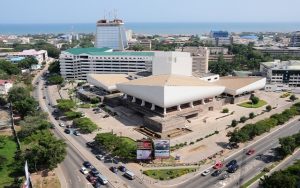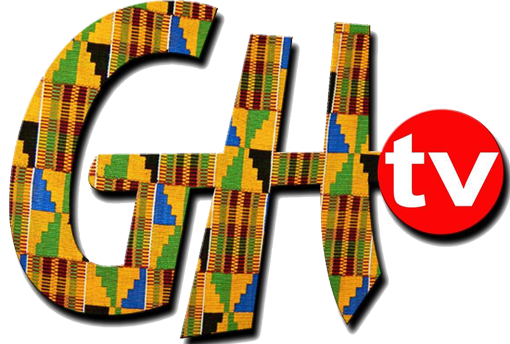 Pressure group, Alliance for Accountable Governance (AFAG) has joined the many voices opposing the move to pay the mandatory TV license and setting up of a special TV License Court to prosecute anyone who defaults to pay as directed.
Pressure group, Alliance for Accountable Governance (AFAG) has joined the many voices opposing the move to pay the mandatory TV license and setting up of a special TV License Court to prosecute anyone who defaults to pay as directed.
AFAG, a pro-democracy group with an objective of making sure governments are accountable to its citizenry has described as needless, the move by the Chief Justice, Sophia Akuffo, to jail anyone who defaults to pay their TV license.
According to the pressure group, while other countries are abolishing the payment of TV license fees, it fascinates them to see Ghana trying to criminalize its citizens over a system that is being abandoned worldwide.
They further indicated that “AFAG’s position on the compulsory TV license remains unchanged. We continue to maintain that Ghanaians will not be bullied into paying this fee. The world is at a stage where the speed of broadband is going up, and ownership of devices connected to the internet has increased, with people at home possibly watching live TV on devices other than the TV, would they also be billed with a license fee? We hope not. In the unlikely event, any attempt to charge users on mobile phone for using their devices to watch TV will also be resisted”.
Chief Justice, Sophia Akuffo, set up the court based on a request made by GBC’s Director-General Dr Kwame Akuffo Anoff-Ntow in November last year.
Some Ghanaians have vehemently deplored the decision, saying they are ready to go to jail for non-payment of the license fees.
Read AFAG’s statement below:
Alliance for Accountable Governance (AFAG) has learnt with mirth a move by the Chief Justice, Sophia Akuffo to set up a special TV License Court to deal with people who refuse to pay the mandatory TV license.
In an era where countries across the world are either abolishing the TV license fees in countries like Finland and Iceland, or reducing it considerably (Poland, Germany) because of a high evasion rate. Others such as China, Uganda, Canada, India, Australia, USA, Brazil and Russia are countries with no TV license fees. It is interesting to know that Ghana would rather criminalize her citizens over a system that is being abandoned all over the world.
The UK model, which the Ghanaian system is modeled after, is completely different. This is because, unlike the Ghana Broadcasting Corporation which generate income from commercial activities like advertisements and announcements and also receive yearly subvention from government, the local public broadcaster in the UK doesn’t have advertising or subscription as part of its funding mix.
AFAG’s position on the compulsory TV license remains unchanged. We continue to maintain that Ghanaians will not be bullied into paying this fee. The world is at a stage where the speed of broadband is going up, and ownership of devices connected to the internet has increased, with people at home possibly watching live TV on devices other than the TV, would they also be billed with a license fee? We hope not. In the unlikely event, any attempt to charge users on mobile phone for using their devices to watch TV will also be resisted.
This TV license policy has been on the drawing board since 3 years ago. AFAG opposed attempts to introduce it in 2015. We will oppose it on any day and indeed not now.
It is expected that revenue will be shared in percentage terms among Ghana Broadcasting Corporation (GBC), 72%, Ghana Independent Broadcasting Association (GIBA), 15%, National Media Commission (NMC), 4%, Media Development Fund, 4%, Films Fund, 2% and Management of TV Licence Fee (GBC), 3%. Obviously the state broadcaster is the target.
AFAG however propose that, the ministry of information holds a stakeholder forum involving Ghana Broadcasting Corporation (GBC), National Commission for Civic Education (NCCE), National Media Commission (NMC), the Independent broadcasters association including CSOs and the ministry of finance to draw a roadmap on how to charge the consolidated fund for media development.
These fund may be applied to sponsor or support media (television/radio/print/electronic) houses whose specific program promotes Ghanaian values or target minority groups development. It’s a matter of priority!
Be it as it may, we expect government to explore ways of resourcing the state broadcaster either wholly by the state as stated earlier or through all forms of public private partnerships as we move GBC to a very independent status. Government may also consider a private management of GBC.
GBC is endowed with land mass, infrastructure, human resources, logistics and wide coverage of its network. Why is GBC struggling financially? Mr. President if the daily graphic among its competitors remains autonomous and self funding, then GBC can copy same in the midst of competition. Otherwise we blame its poor state on management, and the lack of clarity for resource allocation from the state or through an appropriate funding mix involving the private sector.
AFAG is totally opposed to a TV license regime from an obsolete Television licensing ACT 1966 (NLCD).
God bless Ghana.
AFAG leadership
Source: www.ghanaweb.com

